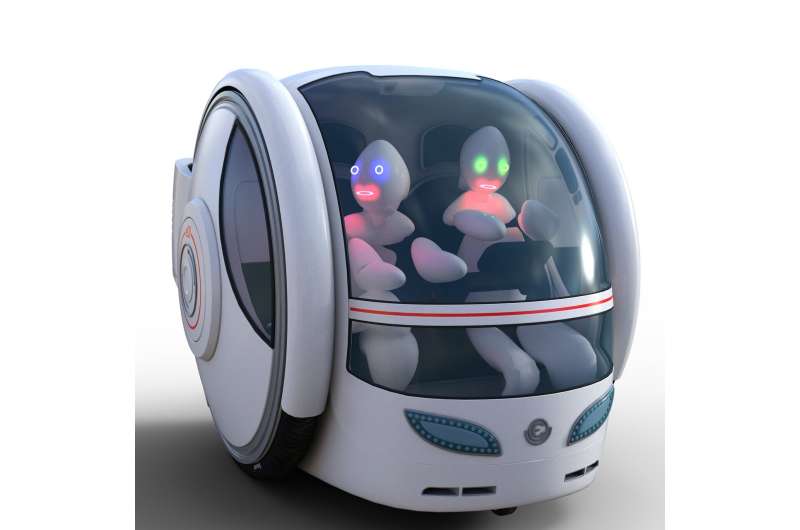Public blame accidents on drivers more than their automated cars when both make mistakes

The public are more likely to blame accidents involving semi-autonomous cars on driver—rather than machine—error, a new study has found.
An international research team, including Edmond Awad from the University of Exeter's Business School, has examined how the general public attribute blame in accidents involving self-driving cars.
It found that in crashes involving a car that has dual human and AI controls, the public presume that the machine is less accountable.
The research team believe the results could have significant ramifications for how juries could apportion blame in future death-crash cases
The study is published in the journal Nature Human Behaviour on Monday, October 28th 2019.
While the pursuit of creating fully 'driverless' cars has been the goal for many manufacturers in recent years, they still remain some way off from coming to fruition.
Instead, manufacturers are developing semi-autonomous cars that can be controlled by both AI through an "autopilot" mode, and human drivers.
These developments, however, mean a step-change from individuals having full control over their vehicles—and therefore bearing full responsibility for crashes—to a new system where blame and responsibility may be shared between a human and a machine.
For the study the research team, which also includes experts from the Massachusetts Institute of Technology, the University of British Columbia, Max-Planck Institute, Toulouse School of Economics, and Harvard University, asked members of the public to consider hypothetical cases in which a pedestrian was killed by a car operated under shared control between humans and machines—and to indicate how blame should be allocated.
It found that when one driver makes an error, they were blamed more—regardless of whether that driver is a machine or a human.
Significantly, however, when both drivers make errors in cases of human-machine shared-control vehicles, the blame attributed to the machine is reduced.
The team suggest that the study highlights a public under-reaction to potential malfunctioning AI components of automated cars that could cause an incident. Instead, there is a greater presumption that the human driver should be held more accountable.
This could, in turn, mean that the 'de-facto' standards for shared-control vehicles established in courts by the jury system could fail to properly regulate the safety of those vehicles.
Instead, the team suggest a top-down scheme, through federal laws, may be needed to ensure that the responsibility for crashes is properly attributed.
Dr. Edmond Awad, from Exeter's Business School explained: "It seems like if we leave it to the general public, they may unintentionally go soft on AV manufacturers to improve their safety standards."
More information: Edmond Awad et al. Drivers are blamed more than their automated cars when both make mistakes.Nature Human Behaviour. (2019) doi.org/10.1038/s41562-019-0762-8
Journal information: Nature Human Behaviour
Provided by University of Exeter




















